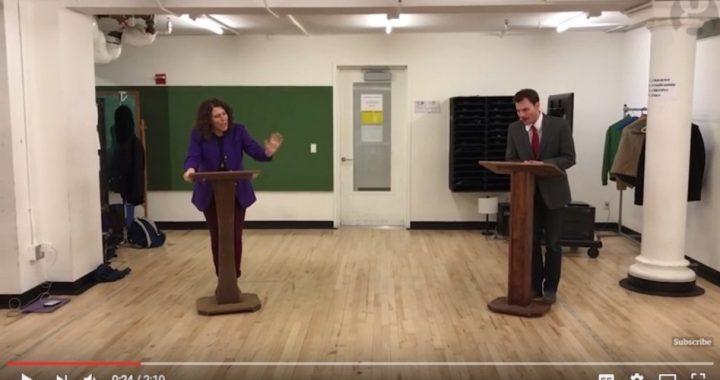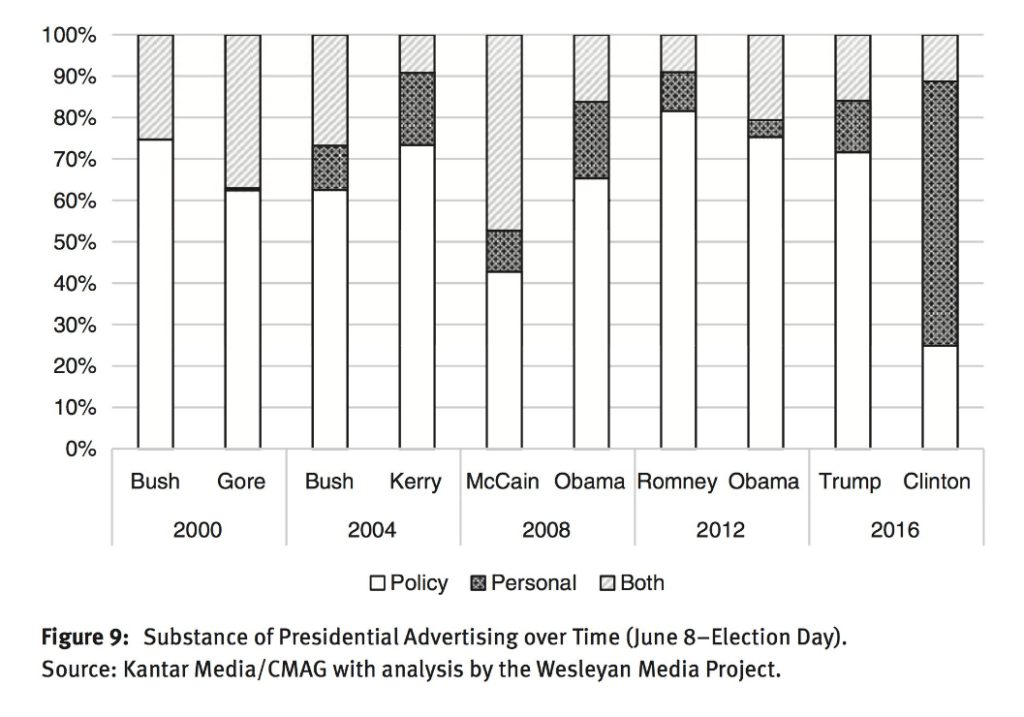
“Misogyny! Many Americans just don’t want to vote for a woman!” This was heard after Election Day as one explanation for Hillary Clinton’s upset loss. But a recent experiment indicates that the Democrat presidential nominee would be even less likable as a man — and Donald Trump would be better received as a woman.
As Breitbart reported, “Maria Guadalupe, an associate professor of economics and political science at INSEAD, joined forces with Joe Salvatore, an associate professor of educational theater at NYU’s Steinhart School, to develop Her Opponent, a play featuring actors performing excerpts from the three [presidential] debates verbatim but with the … [sexes] of the candidates switched.”
“The play gave different names to the Trump and Clinton characters, calling Trump’s persona ‘Brenda King’ and Clinton’s persona ‘Jonathan Gordon,’” Breitbart continued. The actors not only precisely replicated the candidates’ words, but also their body language, gestures, and tone (video below).
As to the hypothesis, “Salvatore says he and Guadalupe began the project assuming that the…[sex] inversion would confirm what they’d each suspected watching the real-life debates: that Trump’s aggression — his tendency to interrupt and attack — would never be tolerated in a woman, and that Clinton’s competence and preparedness would seem even more convincing coming from a man,” reports NYU’s Eileen Reynolds.
That wasn’t how it turned out.
Instead, the professors’ and the audience’s response was precisely the opposite. “We kept checking in with each other and realized that this disruption — a major change in perception — was happening,” stated Salvatore. “I had an unsettled feeling the whole way through.”
One audience member described Trump’s technique as “precise.” Another stated that he’d created “hummable lyrics” while Clinton’s presentation had no “hook.” Someone else even said that Jonathan Gordon [the male Hillary Clinton] seemed “fake” and “untrustworthy” and, because of all the smiling, “really punchable.”
(I’d conjectured during the debates last year that Clinton’s artificial, gratuitous smiling would be found obnoxious.)
These reactions were all the more striking considering that Her Opponent’s audience was drawn from liberal academic circles. “We heard a lot of ‘now I understand how this happened’ — meaning how Trump won the election,” stated Salvatore. “The simplicity of Trump’s message became easier for people to hear when it was coming from a woman — that was a theme.”
In fact, he admitted, “I was surprised by how critical I was seeing [Clinton] on a man’s body, and also by the fact that I didn’t find Trump’s behavior on a woman to be off-putting. I remember turning to Maria [Guadalupe] at one point in the rehearsals and saying, “I kind of want to have a beer with her!” reported Reynolds.
As Guadalupe put it, while she and most of the people polled before the performance had assumed that Clinton would look “more presidential” as a man, “Our predictions were way off.”
Of course, the initial assumption reflected dislocation from reality. It again underscored that while leftists complain about unconscious biases in others, they’re blithely unaware of their own, more profound prejudices. This isn’t surprising since liberals are almost universally relativistic and are thus highly feelings-driven, and emotion is the mother of prejudice.
And part of this dislocation from reality is failure to perceive a simple truth: It isn’t 1952 anymore. Today’s prevailing social-code force — the one shaping dominant biases — is political correctness. Thus, far from being a liability in contemporary political life, female or minority status is an asset.
I explored this phenomenon in the 2007 article “Because She’s a Woman” — which was specifically about Clinton — and the 2008 piece “The New Chivalry.” Then there’s “Cultural Affirmative Action,” which I defined as “when people in the market and media privilege others — sometimes unconsciously — based upon the latter’s identification with a ‘victim group.’”
This phenomenon manifested itself at that time with respect to Barack Obama. As former Democrat vice-presidential candidate Geraldine Ferraro put it, alluding to his meteoric political rise, “If Obama was a white man, he would not be in this position.” This ran counter to the pseudo-elite consensus that his race was a handicap, and she was condemned.
Yet not only was Ferraro correct in later saying that “they’re attacking me because I’m white,” but her initial claim was vindicated: An October 2008 Gallup poll found that while Obama’s race made six percent of respondents less likely to vote for him, it made nine percent more likely to vote for him.
Moreover, I believe the poll underestimated his race’s impact, as factors such as making history and electing the “first black president” often have a subconscious effect. After all, Americans have long been weaned in a politically correct environment, and the nature of biases — as exemplified by the Her Opponent audience — is such that people frequently aren’t aware of them.
As for Clinton, there’s another way prejudice benefitted her. While the rap on Trump was that he built his campaign on an edifice of negativity without a foundation in substance, a recent Wesleyan University analysis shows that Clinton was actually the Queen of Mean.
In fact, her use of negative personal advertising was apparently unprecedented (chart below), far exceeding Trump’s. Moreover, “Clinton’s message was devoid of policy discussions in a way not seen in the previous four presidential contests,” writes the Wesleyan Media Project.
 In fairness, while cultural affirmative action was a factor in the common perception to the contrary, left-wing media propaganda and other biases (Trump’s history as an outrageous celebrity) played an even larger role.
In fairness, while cultural affirmative action was a factor in the common perception to the contrary, left-wing media propaganda and other biases (Trump’s history as an outrageous celebrity) played an even larger role.
Nonetheless, cultural affirmative action is a powerful force — one influencing even conservatives. Just consider the Sarah Palin phenomenon. Not only wouldn’t she have been Senator John McCain’s running-mate in 2008 if she hadn’t been a woman, but she wouldn’t have become a cult figure in Republican circles. After all, as I explained in 2015, she “says nothing 1000 politicians haven’t said before her.”
“The difference is what she is. No one would be talking about Palin if she weren’t attractive and female.”
The lesson here is that every age has its characteristic prejudices. Ours have been shaped by decades of “leftist” social engineering and are so ingrained that most people aren’t even aware of them. That is the true victory of liberalism — one enjoyed no matter who wins the elections.
Image: screenshot from YouTube video of Her Opponent



